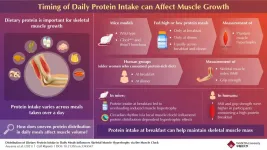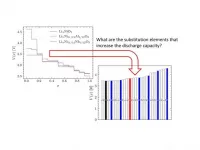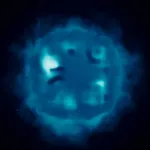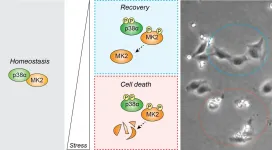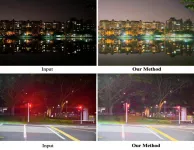(Press-News.org) UK policymakers preparing trade deals post-Brexit can learn important lessons from New Zealand's 'unique drug agency' the Pharmaceutical Management Agency (PHARMAC), if prices for therapies and access to key drugs are to be protected, say researchers behind a new study.
Over two decades, New Zealand has managed to reduce spending on drugs significantly and consistently despite maintaining access for its population to key treatments. As such, it is an outlier among the world's richest nations: no other OECD country has managed to achieve this.
The investigation from researchers at the universities of Bath and Durham suggest New Zealand's success can largely be ascribed to its drug agency PHARMAC. PHARMAC is unique because it not only assesses drugs scientifically, but also negotiates their prices with pharma companies.
Its equivalent in England is NICE, however whereas NICE focuses on the scientific assessment of drugs, price negotiations with drug companies rest with NHS England. There is speculation that given the attractiveness of the UK as a market for multinational drug companies, new trade deals being agreed by the UK could undermine NICE's ability to assess new drugs and determine whether they represent value for money.
For example, the researchers argue that if trade deals grant pharmaceutical companies new powers to challenge NICE's decisions through new forms of appeals mechanisms this could be a 'game changer', providing companies with additional tactics to drive up prices.
Their study, which involved analysis of policy documents produced alongside New Zealand's trade talks with other countries, freedom of information requests and interviews with key experts and policymakers, points to what could go wrong with drug prices and drug access in the UK post-Brexit.
Researcher, Dr Piotr Ozieranski from the University of Bath's Centre for the Analysis of Social Policy explained: "The implications of this study are particularly important post-Brexit and especially in the context of trade policy because of the potential impact these new deals will have on drug prices. The key issue is whether NICE is sufficiently protected for the independent, expert analysis it gives to ensure value for money for the NHS.
"Another key lesson from the study is that not only is PHARMAC protected from commercial influence, it is also trusted with maximum flexibility in negotiating drug prices with manufacturers. Depending on the situation, it can negotiate prices before a drug even reaches the market or, conversely, stall negotiations until it is about to lose patent protection and become cheaper. It also encourages price competition among companies by setting up competitive tenders and play-offs, as well as negotiating with multiple applicants at the same time."
Ben Main from the University of Durham, commented: "New Zealand's success in ensuring continued access to drugs whilst consistently driving down prices is not by accident; even more so because, unlike the UK, New Zealand cannot use the argument of a large population to secure lower prices. PHARMAC is a brilliant negotiator and uses flexibility to achieve good deals. Healthcare policymakers in the UK can learn from this model.
"However, our work raises an important question for UK policymakers: Is it worth granting NICE extra powers that would allow it to emulate some of the tactics used by PHARMAC? While price negotiations are typically shrouded in secrecy, New Zealand's evident success suggests that experts can be trusted not only with evaluating drugs scientifically but also striking favourable deals with the industry."
The paper also highlights the importance of protecting NICE from political interference.
Ben Main added: "Crucially, PHARMAC wields much policy authority, which is bolstered by social and political support even though some of its decisions may at times deny access to promising drugs to some patients. This contrasts with NICE's position, which on occasions has been challenged by politicians and NHS officials wanting to secure funding for specific therapies which did not pass - or were unlikely to pass - NICE's evaluation criteria. By and large, PHARMAC is not part of party politics."
Main also draws attention to how the industry has sought legal changes to the way PHARMAC operates: "One key lesson surrounds the issue of transparency. In other institutional contexts a lack of transparency surrounding decision making is a criticism levelled at policymakers. What we see is that over the last decade in New Zealand there is 'transparency' on industry's terms - a weapon to offset PHARMAC's authority - and a lack of transparency on PHARMAC's terms which has enabled their spending model and offset industry's dominant market position."
New Zealand's policymakers have sought to insulate PHARMAC's power by legally exempting its decisions from being potentially challenged as 'anti-competitive' by drug companies (Section 53 of the New Zealand Public Health and Disability Act 2000). On top of this, after lengthy negotiations, New Zealand refused to sign a Trans-Pacific Partnership treaty with the US, whose 'transparency and disclosure requirements' included provisions which could be used to challenge PHARMAC's decisions.
Instead, it signed a Progressive Trans-Pacific Trade Treaty (CPPTP) with eight other countries. CPPTP is unlikely to affect PHARMAC, however to further safeguard this, New Zealand subsequently suspended the application of its procedural rules in relation to PHARMAC.
INFORMATION:
To access the full paper and discussion see https://onlinelibrary.wiley.com/doi/10.1111/1467-9566.13343.
Research led by the University of Southampton into the uptake of the COVID-19 vaccine in Ghana, West Africa has concluded that vaccine hesitancy has seen a small, but significant increase over the last three months. This research is in collaboration with youth-led not-for-profit organisation PACKS Africa.
In the latest survey of 1,295 unvaccinated people, in May/June 2021, willingness to be vaccinated remained relatively high at just over 71.4 percent. However, this figure is down 11 percent on results from March 2021 when an earlier version of the same survey was conducted.
The latest findings show 28.6 percent of respondents are still either undecided or unwilling to get the jab. Among this 28.6 percent group, a little over half said ...
Proteins constitute an essential dietary component that help in the growth and repair of the body. Composed of long chains of amino acids, proteins promote the growth of skeletal muscles, the group of muscles that help us move. Humans have been aware of the benefits of proteins for long. However, recent studies have shown that having the right amount of protein at the right time of the day is essential for proper growth. This is called 'Chrononutrition,' in which when you eat is as important as what and how you eat.
The reason behind this is the body's internal biological clock, called the 'circadian rhythm.' This rhythm is followed by all cells and controls life functions like metabolism and growth. Interestingly, protein digestion and absorption have been ...
Chemical synapses transmit information within the nervous system. When a presynaptic cell is electrically excited, synaptic vesicles fuse with the presynaptic membrane causing messenger substances within the vesicles to be released into the synaptic cleft. These then bind to receptors in the postsynaptic cell where they trigger an electrical signal once again. The temporal and spatial sequence of the incoming signals determines how information is processed and transmitted in the brain. In order to sustain their function in the long term, chemical synapses need to recycle synaptic vesicles to make them available for renewed signal transmission. Professor Carsten Duch and Professor Martin Heine and their respective ...
"The project's main objective is to integrate a certain degree of automation, so that an operator can control a small fleet of up to 10 drones from a single ground station," says Luis E. Moreno, LABYRINTH's coordinator and researcher at the UC3M's Robotics Lab. "The idea is that the operator indicates the mission to be undertaken (for example, monitoring traffic in a particular area) and the system automatically converts this mission into a set of routes that each drone has to follow, automatically calculating alternative routes when necessary," he explains. In addition ...
The economic and environmental pros and cons of melting Arctic ice creating shorter shipping routes through the polar region are weighed up in ground-breaking research from UCL experts in energy and transport.
They conclude that policy makers must properly assess the environmental trade-offs and costs in addition to the commercial benefits and opportunities in Arctic shipping. The authors also want to see more incentives to drive technological developments that will accelerate the uptake of green fuels and technologies.
The Arctic is the fastest-warming region on the planet.
Shorter Arctic shipping routes, which mean less fuel used are already used by a handful of ships, when areas of the Arctic ice melt ...
Ishikawa, Japan - Powering everything from smartphones to electric cars, lithium-ion batteries (LIBs) have evolved markedly with advances in technology and revolutionized our world. The next step in the progress of technology is developing even better batteries to power electronic devices for longer durations. One promising technique for increasing battery performance involves the atomic substitution of positively charged ions or "cations" in the cathode material. However, doing so systematically for different substituent cations to determine the ideal ones experimentally is complex and expensive, leaving us with simulations as the only viable option for narrowing down the choices.
Several studies have reported an improved battery life and ...
This summer, if you see a butterfly with wings that are blue on top with orange spots underneath, you may have crossed paths with a male European Common Blue (or Polyommatus icarus), a newly introduced species in Canada.
Could it be a fluke? Probably not, according to a group of researchers from the University of Ottawa who have taken a close look at this captivating blue creature. They are in fact the first to study its ecology.
"The results of our study suggest that the Polyommatus icarus (P. icarus) could become widespread in the future since it prefers urban areas," said uOttawa PhD student Stephanie Rivest, who is the first ...
The final stage of cataclysmic explosions of dying massive stars, called supernovae, could pack an up to six times bigger punch on the surrounding interstellar gas with the help of cosmic rays, according to a new study led by researchers at the University of Oxford. The work will be presented by PhD student Francisco Rodríguez Montero today (19 July) at the virtual National Astronomy Meeting (NAM 2021).
When supernovae explode, they emit light and billions of particles into space. While the light can freely reach us, particles become trapped in spiral loops by magnetic shockwaves generated during the explosions. Crossing back and forth through shock fronts, these particles are accelerated almost to the speed of light and, on escaping the supernovae, are thought ...
Living organisms are often exposed to stress stimuli generated either by external or internal factors, and they need to respond accordingly. At a cellular level, stress usually triggers the activation of survival pathways that contribute to the recovery of cell homeostasis. However, when stress is too high, a process of cell death is initiated that eliminates the damaged cell.
Scientists led by ICREA researcher Dr. Angel Nebreda, head of the Signalling and Cell Cycle laboratory at IRB Barcelona, have identified an important role of the p38-MK2 pathway in determining cell fate in response to stress.
"Our ...
Computer vision technology is increasingly used in areas such as automatic surveillance systems, self-driving cars, facial recognition, healthcare and social distancing tools. Users require accurate and reliable visual information to fully harness the benefits of video analytics applications but the quality of the video data is often affected by environmental factors such as rain, night-time conditions or crowds (where there are multiple images of people overlapping with each other in a scene). Using computer vision and deep learning, a team of researchers led by Yale-NUS College Associate Professor of Science (Computer Science) Robby Tan, who is also from the National University of Singapore's (NUS) Faculty of Engineering, ...
